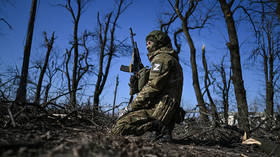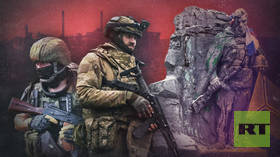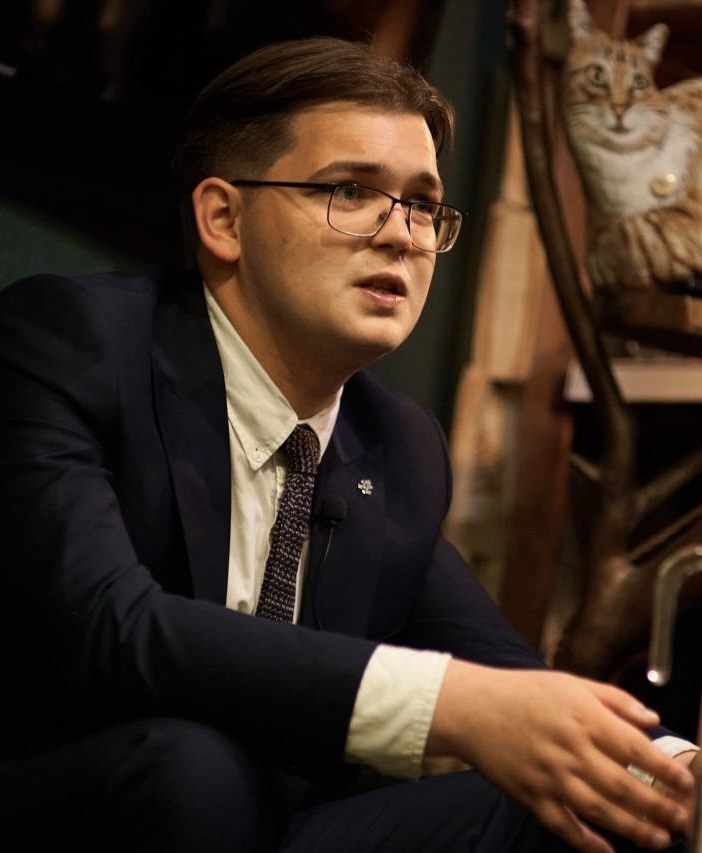Navalny used to support me, now I raise money for Russian soldiers
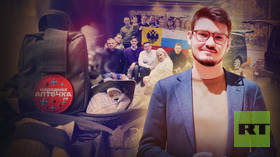
Daniil Makhnitsky’s career has taken many unexpected turns: he was a federal official in the Ministry of Industry and Trade, a business owner, and a candidate for the semi-liberal New People party in the State Duma [national parliament] elections, winning over 60,000 votes. Back then he had the support of the late Russian opposition figure Alexey Navalny.
However, after the start of Russia’s military offensive in Ukraine, he changed tack and became involved in humanitarian work.
Makhnitsky founded the People’s First Aid Kit project, which supplies the Russian Army with modern tactical medicine kits. So far, he has sent over 5,000 first aid kits to the front and has raised more than $500,000. He told RT how he created one of the most effective volunteer projects by utilizing management practices from business and politics.
First steps in humanitarian activities and the changing politics
RT: Would you say that Russian society has changed and become more open towards humanitarian aid projects since the beginning of hostilities?
Makhnitsky: I had a lot of experience in political fundraising, but it surprised me how many people want to get involved in humanitarian work. This conflict has demonstrated that there is a great number of people who are ready to help someone they don’t even know. It’s a broad network of people, and even though they don’t share specific political views, they are actively involved [in humanitarian work].
RT: Why didn’t the [pro-Western] liberal opposition use its political resources for humanitarian work like you did?
Makhnitsky: Before the outbreak of hostilities, I had some contact with them. In the 2021 elections, I was included in the Smart Voting lists, and Alexey Navalny’s wife voted for me. But when the war started, their position was that they had nothing to do with it. I wouldn’t even call it a “position” but rather a “counterposition.”
Besides, I believe they [the pro-Western opposition] didn’t have many supporters. Whose interests do they serve? As for us, we’re closely tied to the Russian people, to the Russian state. For us, it’s a matter of identity and this is why even people who don’t share our political views help us. When there’s a war going on, it’s important to remember things like that, and we’ve remained true to our country.
Moreover, to help the side which your country is fighting against is the worst political idea. Even if you think that this war is wrong or unrighteous, you still have your country [to worry about].
So the liberals failed completely. The West doesn’t take them seriously, it says – “Oh, so why didn’t you go and overthrow Putin?” And in Russia they are considered traitors because they betrayed their own people, their state. I don’t know what has to happen in order for Russia to accept them with open arms.
As for our political movement, it made the right long-term decision – though generally, there was no other choice for us. I believe time will put everything in its place.
RT: How did you become involved in humanitarian work?
Daniil Makhnitsky: This was possible because of the environment in which I worked. I was involved in independent politics, our political movement participated in the Moscow City Duma elections in 2019 and the St. Petersburg State Duma and Legislative Assembly campaigns in 2021. One of our main reasons for conducting these campaigns was to gain experience, gather resources, sponsors, staff members, and activists. We believed this would help us in the future, even if we didn’t get elected anywhere at that particular moment. And that’s really how things turned out. Of course, at the time, we couldn’t have imagined that all these contacts and resources would come in handy for humanitarian work, but that’s how it turned out.
We started out with [organizing] temporary shelters for refugees. At that time, the fighting had just begun. No one knew what was about to happen, but refugees had already started to arrive. Of course, these were civilian refugees, and we became actively involved in helping them, since it matched our activities and values.
Then, through our political contacts and activists, we built a large regional network. This wouldn’t have been possible without the contacts gathered during our election campaigns. This network helped organize temporary shelters for refugees in 16 regions.
Later, the government started actively helping refugees and we saw that we had already done what we could. We had to move on and go to areas where fighting was taking place directly.
We found some initial contacts in the Donetsk People’s Republic (DPR), which at the time was still an independent region. There were insane difficulties at every step. In order to bring humanitarian aid to the Gusak clinical hospital (one of Donetsk’s main hospitals), we had to resort to the help of our military contacts and transport the cargo across the border through their channels. Some of the difficulties we faced were absurd, and we had to constantly find new solutions.
After we visited the DPR and saw the situation with our own eyes, we knew that we had to go there and help, because that region faced the biggest problems. We prioritized two areas: helping civilians (distributing electric generators, medicine, and delivering medical supplies to hospitals) and helping the military – a task I took up together with Savva Fedoseev. Why did I choose this direction? It was important for me since I saw major problems in the field of tactical medicine that hadn’t been addressed so far.
The process was fairly long and evolutionary – it took us six to eight months to get started, but that’s how we got involved in this work. Before that, I’d never been connected to military structures. I didn’t even serve in the army. I studied in graduate school and had nothing to do with the military.
What is the People’s First Aid Kit project?
RT: Why did you focus on medical aid? How did the idea of launching the People’s First Aid Kit project appear?
Makhnitsky: When we started driving around military units, we saw that demand [for first aid kits] was huge. Back in 2022 (and even now) servicemen lacked many things. When I arrived at the front line, I was shown a huge list of the required items worth tens of millions of rubles – from expensive quadcopters to smaller things like socks. In a situation like this, any humanitarian aid worker (and by that time, we were already experienced humanitarian workers) faces a dilemma. There’s only a certain amount of money that we have, since we’re not a government organization. And from the money that we’ve been entrusted with, we have to derive the maximum benefit.
After lengthy calculations, I realized there’s a very narrow niche which allows us to save a human life with just 3,000-6,000 rubles [$30-65]. You can buy an expensive quadcopter and it will be useful to a certain extent, or you can use this money to buy medical supplies and the result will be ten times greater in terms of saved lives.
Moreover, I positioned myself as a humanitarian aid worker, and it was easier for me to go from organizing shelters for refugees to providing non-combat military aid. In other words, I could raise more money for medical supplies than for some combat equipment.
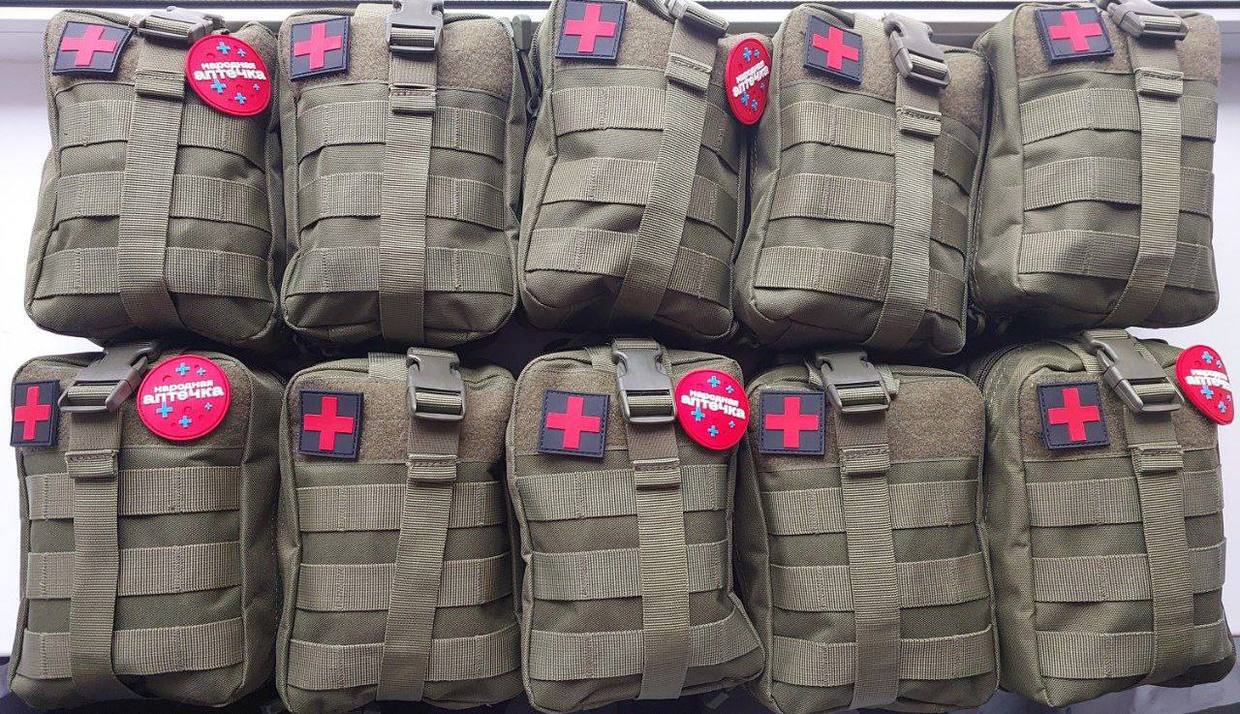
We came to this conclusion largely through trial and error. We calculated the economic aspect: if with 5,000 rubles you can help save the life of a serviceman, that’s the most rational investment. Also, after visiting five or six units, I saw that none of them had good tactical first aid kits. And I realized that this is the direction I need to work in.
First of all, a first aid kit doesn’t cost much. Secondly, we can assemble it ourselves, there’s no need for licensing. Plus, I try to think about the marketing aspect, because as a politician, my task is to sell ideas and do fundraising.
The military has to fight, but I need to help people understand why they should help the military.
And so I thought – a first aid kit is a very understandable product, it doesn’t cost much, it’s easy to market, and it’s incredibly useful. So I became immersed in this work and dedicated myself completely to it.
RT: How did you decide what the first aid kit should include?
Makhnitsky: That’s also an interesting story. First, we stated the problem: the Armed Forces of Ukraine (AFU) have a great first aid kit, but we don’t. Then, we started thinking about it: okay, so the AFU have a cool first aid kit, but why, and what does it include? At that time, they had a standard NATO first aid kit which included 13 items. And so, at first, we just copied their first aid kits. Some items we couldn’t get, so we replaced them with analogues; likewise, when we saw that we could add something useful, we did so. That’s how our kits appeared.
Of course, we consulted frontline medical personnel and tactical medicine specialists in Moscow. But no matter how many medical specialists we talked to, we received different answers all the time – in tactical medicine, everyone has their own opinion. But thanks to this, we came to a certain general conclusion about what was needed. The items that are included in the first aid kits can change. For example, what we have now is the third iteration of the kit. Clearly, this is the coolest, cheapest, and most effective version of our kit, but we couldn’t have invented it right away.
How to spend money effectively
RT: Who’s involved in the People’s First Aid Kit project?
Makhnitsky: Our political activists – the same people who used to work on our election campaigns. There’s a lot of work involved in producing first aid kits in general, it’s not like drones that you just have to buy and deliver. The production cycle is quite long. We need to buy all the items (and some of them are imported), bring them to one place, manually assemble all the kits and check them. At some point, we established a pipeline. Every Saturday, the volunteers come together and assemble 100 first aid kits.
RT: And who donates money to you?
Makhnitsky: Absolutely the same people who donated money to our political campaigns. This is a sort of enlightened upper middle class which can afford to donate from 10,000 to 100,000 rubles a month ($100–1,000). In 2021-2022, they saw our political endeavors and our attempts to participate in elections and supported our social activism, and now they support our humanitarian work. The only difference is that some people want to help hospitals and others want to help the military.
RT: Is it important for you that the People’s First Aid Kit remains a non-profit project?
Makhnitsky: Sure, this is not about business. We have one project manager who does most of the work, he only receives 30,000 rubles ($300) as compensation for his time. None of us receive salaries or bonuses. Throughout this whole time, I haven’t been paid a single ruble, and I can’t count how much of my own money I’ve spent. And I’m not even talking about the time that I could have spent doing something else.
Humanitarian workers also donate their time and money, and face certain risks. We don’t earn money from this. When you earn money, it’s a different story. And it’s not like there is something wrong with that, supplying the army is also a good thing.
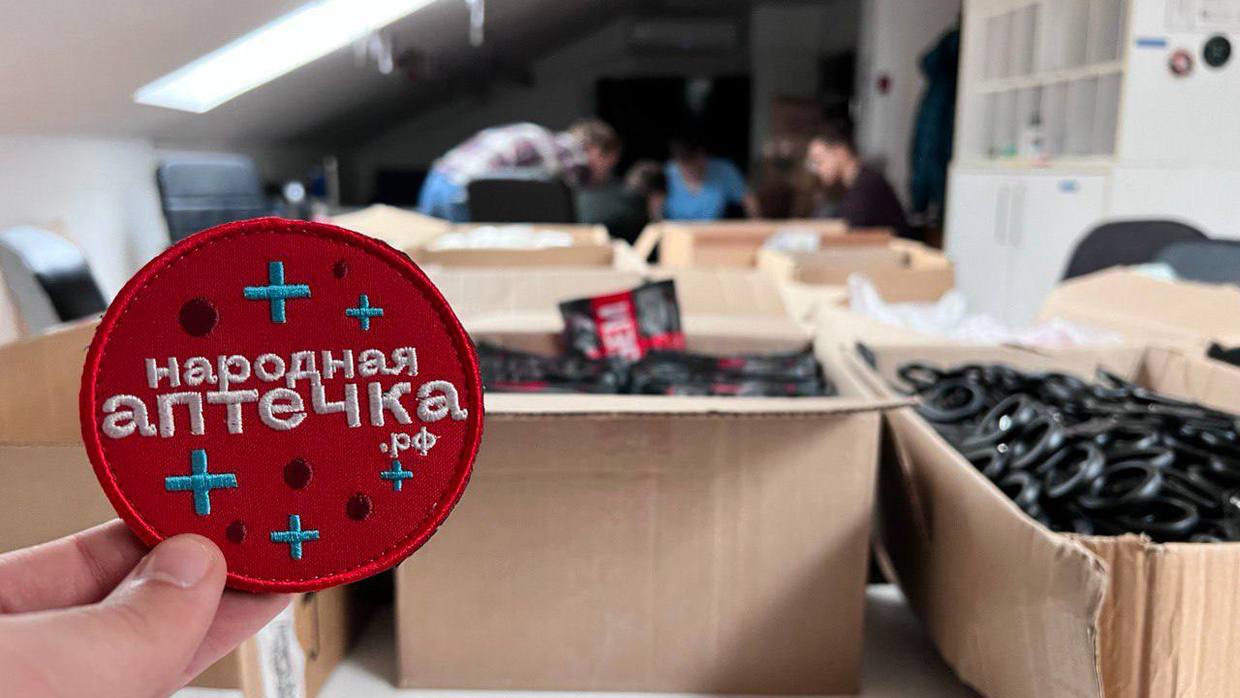
But our work can’t be called a business. We have a place where people come and say, “we have the money, we need 100 first aid kits right now.” And we use their budget and assemble the first aid kits.
Does this sound like a business? No. I would call it “humanitarian contract work.” In general, we had no intention of making a business out of it, business isn’t done like that. I know people who want to supply the army with their version of the first aid kits, but that’s not so much about business as about lobbying. However, decisions like that don’t depend on us, but on top officials.
RT: You used to be a federal official and were also engaged in electoral politics. Which experience turned out to be useful when you started working on the People’s First Aid Kit project?
Makhnitsky: I’d say my experience as a politician and an entrepreneur was quite useful. In terms of internal organization, a humanitarian project is no different from a commercial one. You have the same concepts: an incoming flow of money, expenses, and so on. And the political component comes down to fundraising, gathering volunteers, spreading word about the project, and concluding an agreement with military units. This is 100% political work, because you can’t just come to Donetsk and start distributing first aid kits. You have to have certain agreements, confirmed access, and so on. The entrepreneurial part comes down to organizing this process as efficiently as possible.
I often talk about efficiency, because I’ve collected over 50 million rubles ($545,000) since the beginning of the war and people donate money to me precisely because they know that it will be spent efficiently. This is very important – because if you donate 100 rubles, you want all of that money to go into real work. And we really try to do that.
People at the front and in the rear
RT: How are your trips to the front line organized?
Makhnitsky: We started working with “friendly” units and gradually, more people found out about our work. In each first aid kit we put a paper with a QR code – on scanning it, you can see where the first aid kits come from, who paid for them, and so on. As more units found out about our work, we started receiving requests via our Telegram bot.
Requests are constantly coming from the front line, so we have to filter them. There are high priority and low priority requests, so it’s important to rank them. It takes about a month and a half to assemble the first aid kits. Then, we stuff the kits into a minivan and drive to the front line with a team of experienced, reliable guys. About 300 first aid kits fit into the minivan.
What happens then? We drive around and distribute the kits – sometimes the units are positioned in the rear, but other times we go right to the front line. Once we drove around 14 units in four days. At each location, we always make a video report and thank the people who donated the money. These videos are later used for fundraising purposes. We then agree on the next deliveries, and find out what the servicemen need.
We generally try to make as many videos as possible, this is very important for fundraising purposes, since it’s necessary to constantly engage the audience.
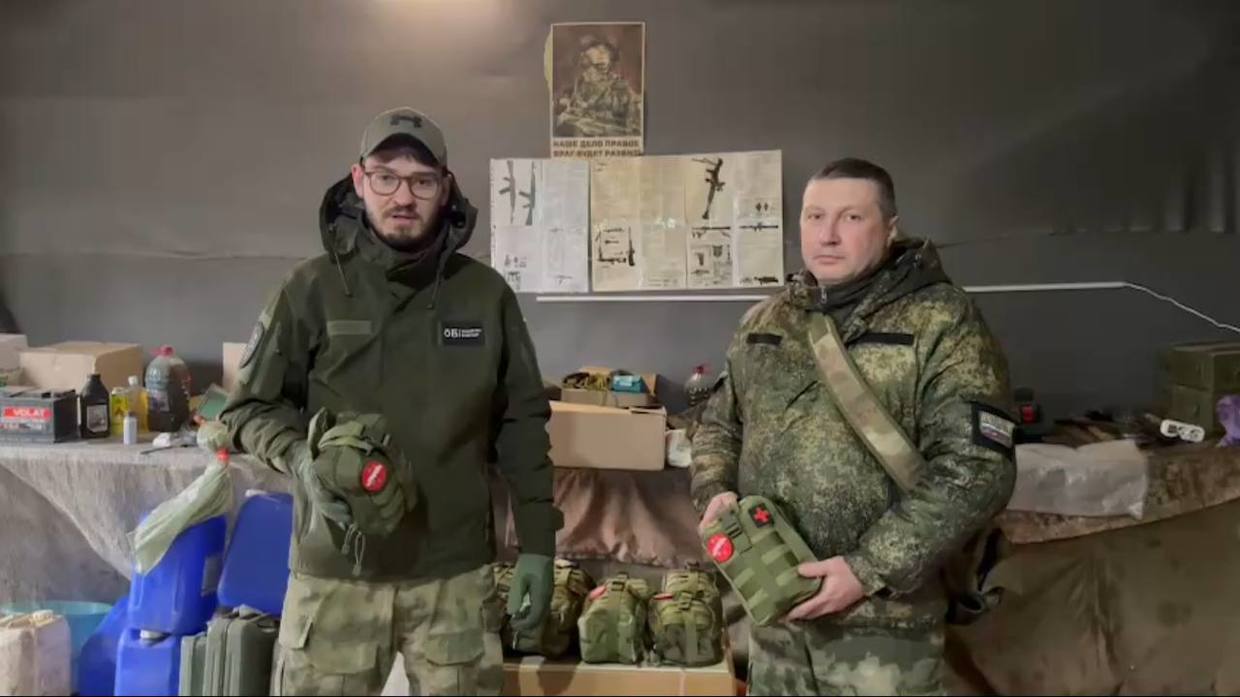
RT: These first aid kits aren’t provided by the Ministry of Defense, but are assembled thanks to the donations made by people. Is this ‘psychological’ aspect important for soldiers?
Makhnitsky: It’s very important. They really appreciate it when someone visits them, brings them something useful and says some kind words, so the servicemen know they aren’t forgotten. It’s one thing to receive supplies from the Ministry of Defense, but it’s completely different when someone tells you,
This is from the Russian people, people donated money for this. Fight and take good care of yourself.”
Servicemen have a difficult job and they need to know that their work is appreciated. And [the good you do] always comes back to you – you give a soldier humanitarian aid, and he responds with sincere emotions. This is very important. Because even if the physical needs of the troops were met 100%, they’d still need to have someone visit them so they don’t feel abandoned in the trenches while standing knee-deep in shit.

